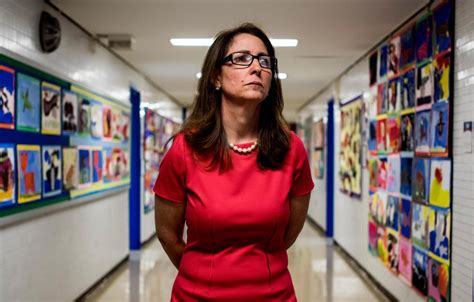A Quote by Heidi Hayes Jacobs
Too often, teachers assume that they are introducing a book or concept to students for the first time. In fact, many units are repeated over the course of a student's K-12 experience.
Related Quotes
Because...Beacause it's so good, and there's only one chance to read a book for the first time, and I want it to last. That experience. I'd finish it in a day otherwise, and that'd be like...like eating a carton of ice cream in one sitting. Too much richness over too quickly. This way, I can draw it out. Make the book last longer. Savor it. I have to since they don't come out that often.
Children, of course, don't understand at first that they are being cheated. They come to school with a degree of faith and optimism, and they often seem to thrive during the first few years. It is sometimes not until the third grade that their teachers start to see the warning signs of failure. By the fourth grade many children see it too.
With repeated listenings, a piece eventually becomes its own being. I very often say to students that this is like meeting a person for the first time. When you first meet someone, you reference that person with others who are similar; but, as you get to know that person better, you begin to understand his unique qualities.
I definitely felt by the time I got to grad school - which was a great experience - I was like, 'What's the difference between the teachers and the students? Why are the teachers teachers if they want to be acting?' It didn't make sense to me anymore. It's not like you learn how to set a broken bone and you get the stamp of approval.
The most successful teachers in low-income communities operate like successful leaders. They establish a vision of where their students will be performing at the end of the year that many believe to be unrealistic. They invest their students in working harder than they ever have to reach that vision, maximise their classroom time in a goal-oriented manner through purposeful planning and effective execution, reflect constantly on their progress to improve their performance over time, and do whatever it takes to overcome the many challenges they face.
I definitely felt by the time I got to grad school - which was a great experience - I was like, Whats the difference between the teachers and the students? Why are the teachers teachers if they want to be acting? It didnt make sense to me anymore. Its not like you learn how to set a broken bone and you get the stamp of approval.

































